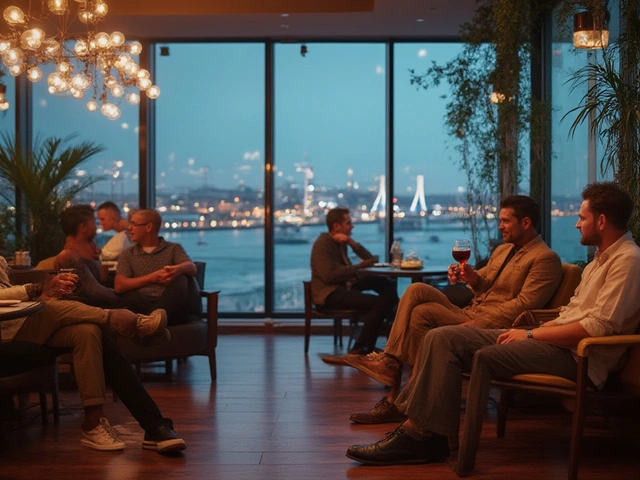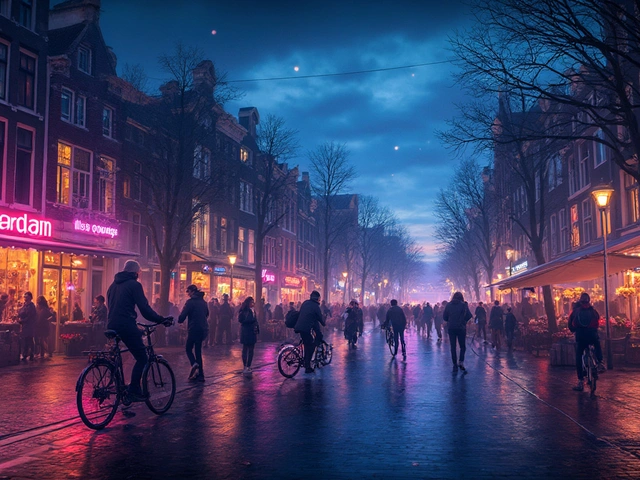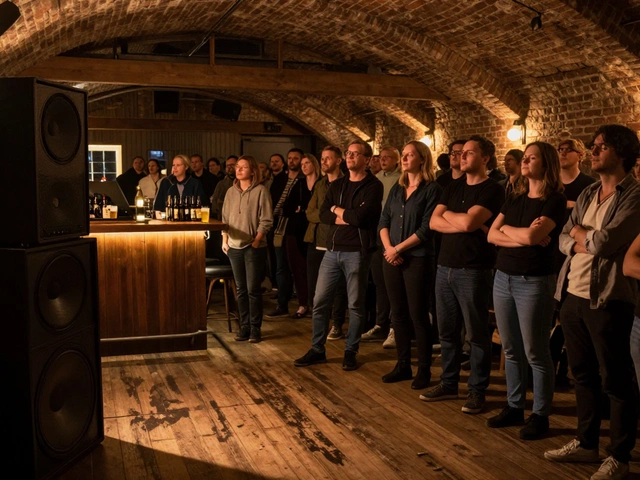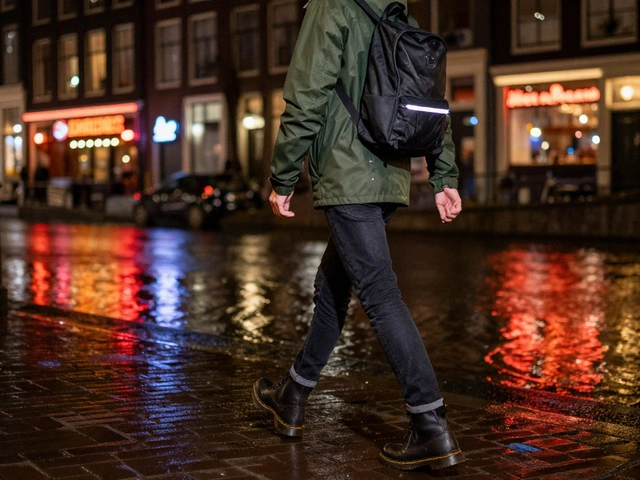Discover the Melkweg Nightclub: Amsterdam’s Legendary Music Venue Where Every Night is Extraordinary
In Amsterdam, where the canals reflect neon lights and the air hums with the bass of distant music, there’s one place that doesn’t just host nights out-it defines them. The Melkweg isn’t just another club. It’s the beating heart of Amsterdam’s alternative culture, a place where punk bands once clashed with classical orchestras under the same roof, and where today’s DJs spin tracks that echo through the city’s oldest industrial buildings.
More Than a Club: A Cultural Institution
Opened in 1970 in a former milk factory in Oud-West, Melkweg was never meant to be just a dance floor. It started as a hub for counterculture-radical theater, underground films, and radical politics. That spirit never left. Today, you’ll find the same raw energy, but now it’s channeled into live music that spans genres you didn’t know could coexist: Dutch indie rock, Ethiopian jazz, techno from Berlin, and Indonesian gamelan all share the same stage in one week.
Unlike the crowded, bottle-service clubs near Leidseplein, Melkweg feels like a secret you’ve been let in on. The walls are still marked with decades of graffiti, the ceiling still drips with vintage lighting, and the staff remember your name if you’ve been back twice. It’s not polished. It’s alive.
What Happens Inside: A Night You Won’t Forget
Monday nights? Indie bands from Utrecht and Eindhoven play to packed crowds in the Main Room, where the sound system-custom-built in the 90s-is still considered one of the best in Europe. You’ll hear bands that never make it to Spotify playlists, but everyone in Amsterdam knows them.
Wednesday is “Bass Night,” a cult favorite where underground Dutch and Belgian techno producers test new tracks. The crowd? Mostly locals in hoodies, no VIP sections, no bouncers checking your ID twice. Just pure sound, sweat, and the occasional shout of “Waar is de bass?!”
Friday and Saturday? You might catch an international act. In 2024, it was the Japanese noise artist Merzbow. Last month, it was the Senegalese griot group Orchestra Baobab. You won’t find this kind of curation at Paradiso or AFAS Live. Melkweg doesn’t chase trends-it sets them.
How to Get There (And Why You Should Walk)
Located at Melkweg 5, just a 15-minute walk from Amsterdam Centraal Station, it’s easy to reach by bike, tram, or on foot. If you’re coming from the Jordaan or De Pijp, take the tram 13 or 17 to “Amsterdam, Weteringschans.” But honestly? Walk. The route takes you past De Hallen’s food hall, past the old cinema De Uitkijk, and through streets where locals still buy stroopwafels from street carts at 11 p.m.
Don’t rely on Uber. Parking is a nightmare. Bikes are everywhere, and the city has over 800,000 of them. If you don’t have one, rent a yellow OV-fiets from the station-it’s cheap, reliable, and the only way to truly feel Amsterdam.
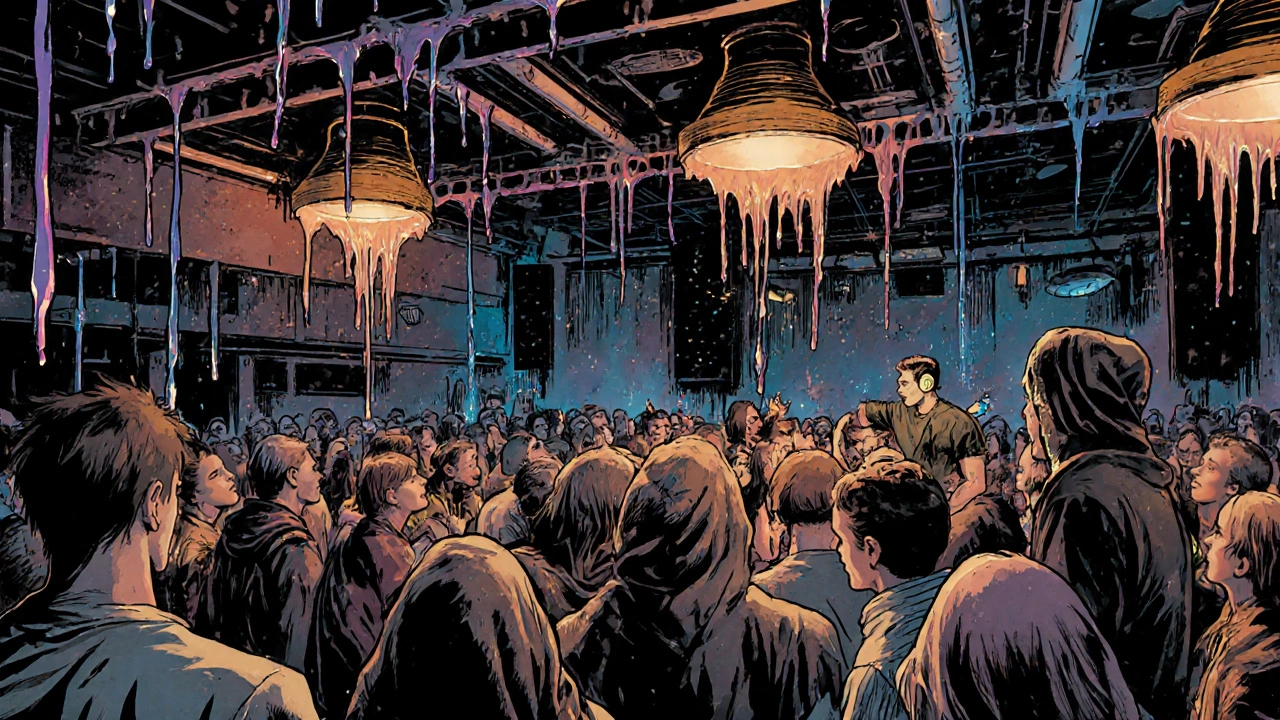
What to Eat and Drink Before the Show
Don’t skip the food. Melkweg doesn’t serve overpriced nachos. Instead, head to De Kas, a greenhouse-turned-restaurant just 5 minutes away, where you can grab a warm beetroot salad with goat cheese and hazelnuts. Or try De Drie Grauwen on the corner of Prinsengracht-known for its bitterballen and local beer selection. Their Amstel Bier on tap? Perfect before a night of loud music.
And if you’re into Dutch tradition, grab a beerenburg-a strong herbal liqueur made in the Netherlands since the 17th century. Order it neat. It’ll warm you up before you step into the sweaty crowd.
Who Goes There? Real People, Not Tourists
Yes, tourists come. But they’re the minority. Most nights, you’ll see students from UvA, graphic designers from De Ateliers, retired jazz musicians, expats who’ve lived here since the 90s, and teenagers who’ve just discovered vinyl. You’ll hear Dutch, English, Turkish, Arabic, and even Frisian spoken in the same line for the bar.
This isn’t a place for posing. No one’s taking selfies at the entrance. No one’s wearing matching outfits. It’s the opposite of what you’d find at a club in Miami or Ibiza. Here, the music matters. The vibe matters. The people? They’re just there to feel something real.
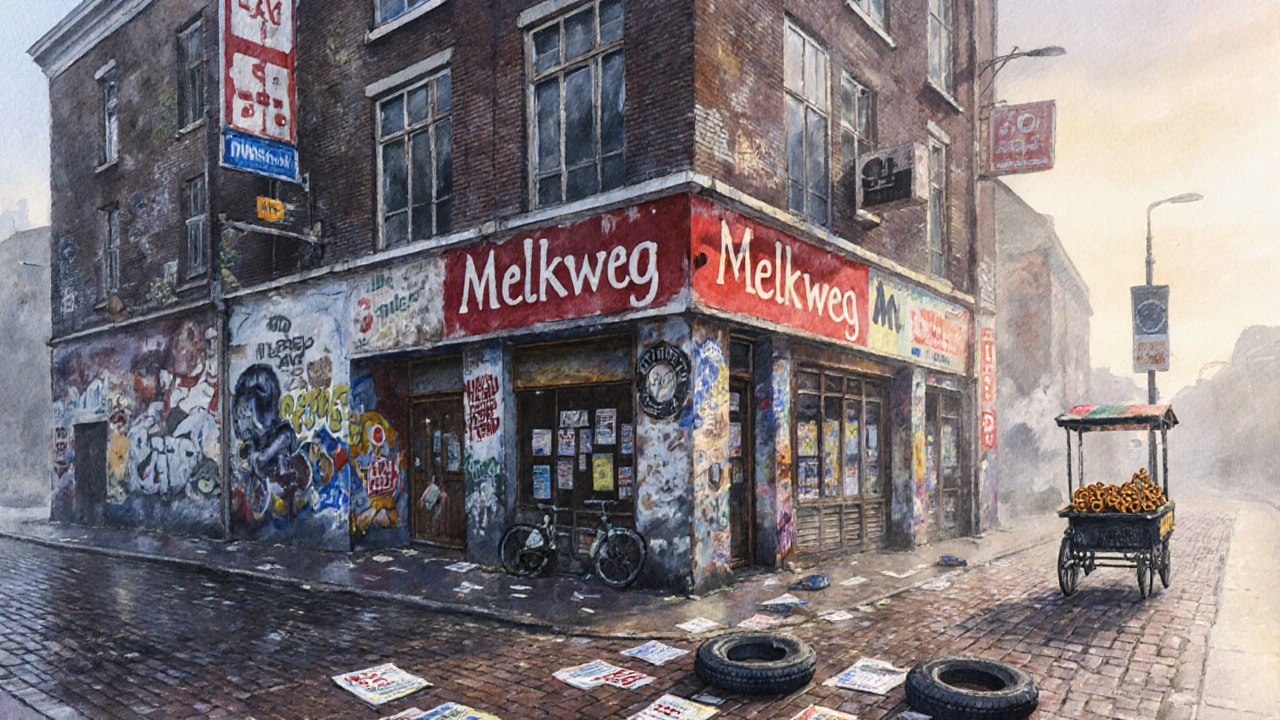
When to Go: Timing Is Everything
Don’t show up at 10 p.m. on a Friday. The line snakes around the block. Come at 11:30. You’ll get in faster, catch the second set, and avoid the worst of the crush. Doors open at 9 p.m., but the real energy doesn’t hit until after midnight.
Check their website before you go. Melkweg doesn’t just list events-they explain them. You’ll find artist interviews, playlist previews, and even tips like “Bring a jacket. The Main Room gets colder than a Leiden winter.”
Why Melkweg Still Matters in 2025
In a city where Airbnb rentals have replaced half the local bars, and chain coffee shops line every corner, Melkweg stands as resistance. It’s not owned by a multinational. It’s run by a nonprofit foundation that reinvests every euro into music education and community projects. They host free workshops for teens on sound engineering. They fund local artists who can’t afford studio time.
This is why Amsterdam keeps it alive. Not because it’s trendy. But because it’s necessary. In a world where everything is algorithm-driven, Melkweg still books acts based on passion, not popularity.
What’s Next? The Future Is Still Being Written
This year, Melkweg launched a new initiative: “Nacht van de Muziek” - a 12-hour live music marathon every October, where 40+ acts play across all five rooms. No tickets. Just show up. Last year, over 12,000 people came. No one was turned away. That’s the kind of thing you won’t find anywhere else in the Netherlands.
They’re also expanding their digital archive-digitizing 50 years of flyers, recordings, and interviews. You can already browse them online. It’s like a living museum of Amsterdam’s underground.
So if you’re looking for the real Amsterdam-beyond the tulips, the windmills, and the red-light district-go to Melkweg. Not to be seen. Not to post. But to listen. To feel. To be part of something that’s been going strong for over 50 years, and still isn’t done.
Is Melkweg open every night?
No, Melkweg isn’t open every night. It typically operates from Wednesday to Sunday, with occasional events on Mondays. Always check their official website for the current schedule, as programming changes weekly based on touring artists and special events.
Do I need to buy tickets in advance?
For most events, especially international acts or sold-out nights, tickets are strongly recommended and often sell out. However, some smaller gigs, especially on Wednesdays, are walk-in only. If you’re unsure, check the event page on Melkweg’s website-it will clearly state whether tickets are required.
Can I bring my own drinks into Melkweg?
No, outside drinks are not allowed. Melkweg has its own bar serving local Dutch beers like Heineken, Amstel, and craft brews from De Molen and Brouwerij ‘t IJ. Water is free, and they offer non-alcoholic options like kombucha and soda. The policy helps support the venue’s nonprofit mission.
Is Melkweg suitable for teenagers?
Yes, but only for certain events. Many shows are 18+, but Melkweg hosts regular youth-friendly nights like “Kinderen in de Melkweg” on weekends, where kids under 16 can attend with an adult. These events feature family-friendly music, workshops, and art installations. Always check the age restriction listed on the event page.
How does Melkweg compare to Paradiso?
Both are iconic Amsterdam music venues, but they’re very different. Paradiso is larger, more polished, and hosts big-name international acts-think Ed Sheeran or Billie Eilish. Melkweg is smaller, grittier, and focuses on underground, experimental, and emerging artists. If you want mainstream, go to Paradiso. If you want to discover the next big thing before anyone else, Melkweg is your spot.
If you’ve never been to Melkweg, you haven’t truly experienced Amsterdam’s nightlife. It’s not about the drinks. It’s not about the lights. It’s about the sound that stays with you long after you leave.




